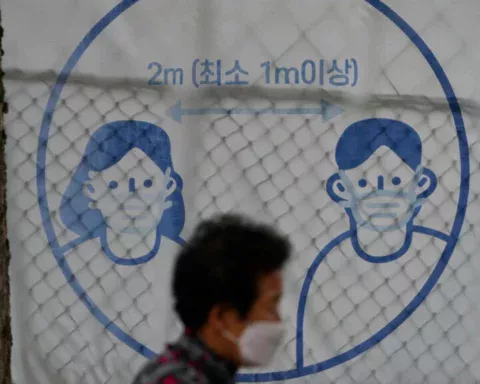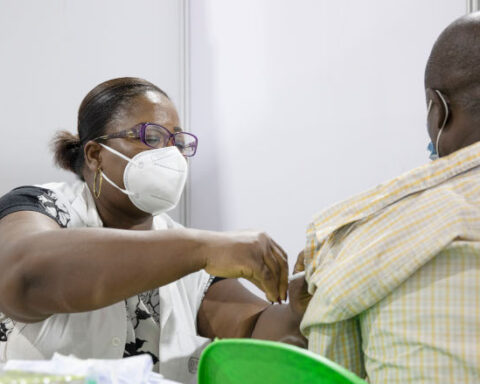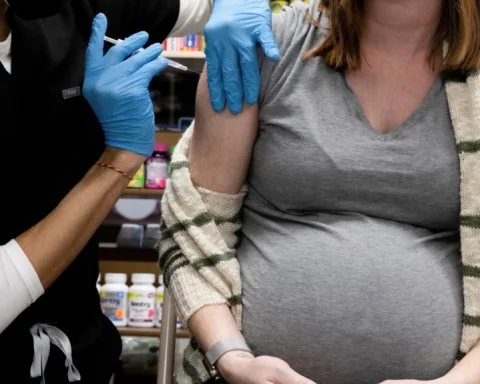Cox’s Bazar – Since the onset of COVID-19, evidence suggests there has been a surge in rates of intimate partner and domestic violence in both Rohingya and host communities.
Due to mobility restrictions and protection risks, women and girls have struggled to access lifesaving GBV and sexual and reproductive health services. Furthermore, the lack of socio-economic opportunities has strained those already at-risk, such as single female-headed households.
Despite these challenges, several innovative tools and strategic partnerships have enabled IOM to adapt its GBV programming to the unique and ever-evolving context of the pandemic.
Building on IOM’s Institutional Framework for Addressing GBV in Crises (GBViC) — rolled out in Cox’s Bazar in 2019 — and its accompanying Action Plan, IOM’s GBV team has managed to successfully ensure the continuity of face-to-face individual case management services. IOM has also maintained its operation of 10 Women and Girls Safe Spaces across nine camps and the emergency safe shelter for GBV survivors, in accordance with COVID-19 health guidelines.
As part of commitments set out in the GBViC Action Plan to equip frontline staff and volunteers with the appropriate knowledge and skills to support survivors of GBV, IOM conducted this month a four-day training on Clinical Management of Rape and Intimate Partner Violence for 50 health care providers.
Another training on GBV core concepts, safe referrals, counter-trafficking, Psychological First Aid and Protection from Sexual Exploitation and Abuse was organized from June to October for 345 clinical and non-clinical staff.
During the pandemic, the Women’s Participation Project –implemented in Cox’s Bazar since 2018– has continued to provide a space for consultations with women and girls despite the camps’ numerous protection challenges. Through this project, the Women’s Committee has been empowered and supported women to participate in decision-making structures, ensuring their needs and capacities are met. The initiative is currently being replicated in four camps, with the goal of better understanding how women’s participation in governance camp structures could contribute to mitigating and reducing the risks of GBV.
IOM recently launched the “Self-Care and Coping Skills in Stressful Situations” booklet, developed for Rohingya and Bangladeshi communities, accompanied by audio recordings. The booklet covers topics, such as coping strategies for reducing stress, key information on protection and GBV services, self-care exercises and COVID-19 prevention measures.
Regular sessions on using the booklet are conducted in the Women and Girls Safe Spaces and at the community level. Meaningful engagement enables participants to voice their safety concerns and supports humanitarian actors in their risk-mitigation efforts. Through a participatory approach, women can define their own risks, capacities, and community outreach strategies.
Rehena is one of the twelve female community leaders who recently attended a training of trainers on the topic, and who is now sensitizing other women on healthy coping mechanisms. “I feel fortunate to have been selected for this training and consider it my duty to pass on this valuable information to other women so they can too be relieved of their daily stress,” Rehena said.
“While important efforts have been made to eliminate violence against women and girls, the implementation of GBV activities remains a significant challenge. It is critical that women and girls remain active participants in the process of identifying protection and GBV risks and solutions,” explained Chissey Mueller, IOM’s Protection Coordinator in Cox’s Bazar.
“During the pandemic, the rights and dignity of survivors continue to be at the heart of our response.”
As part of UN System’s 16 Days of Activism against GBV, celebrated from 25 November to 10 December under the theme “Orange the World: Fund, Respond, Prevent, Collect!”, IOM is co-organizing several interagency events focused on GBV prevention and response in emergencies.
Together with its implementing partner PULSE, IOM is also organizing several field activities focused on GBV risk mitigation, prevention and response, as well as events celebrating women’s skills and accomplishments, all in line with COVID-19 prevention measures.





